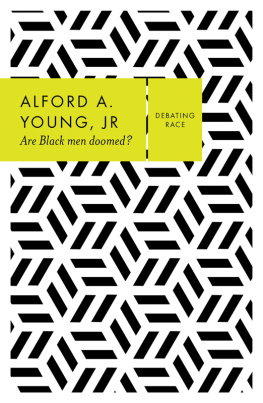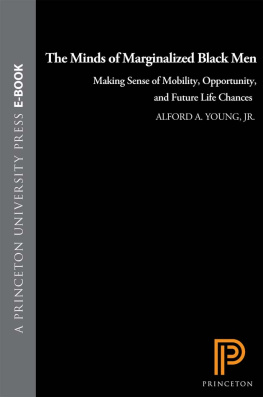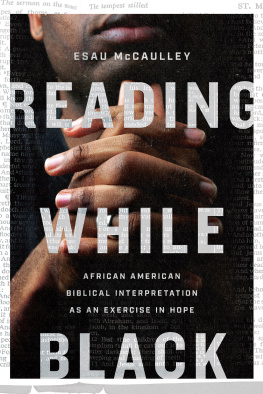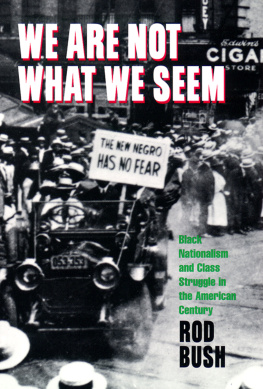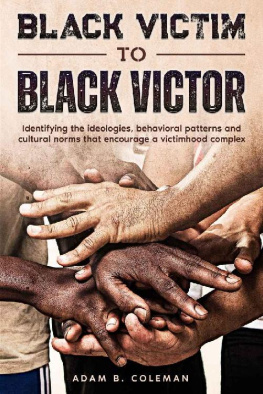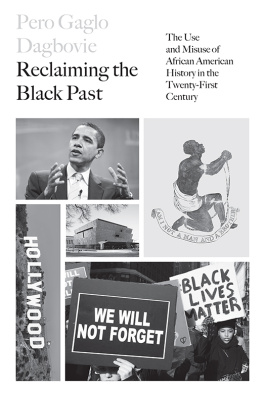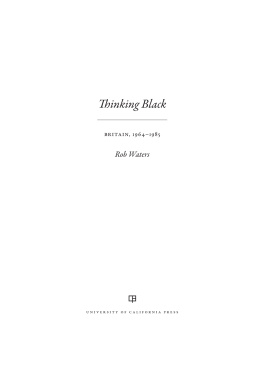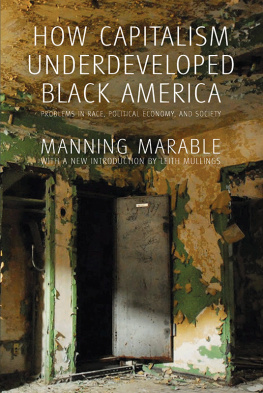
Series page
Debating Race series
- David Theo Goldberg, Are we all postracial yet?
- Ghassan Hage, Is racism an environmental threat?
- Jonathan Marks, Is science racist?
- Alford A. Young, Jr., Are Black men doomed?
Copyright page
Copyright Alford A. Young, Jr. 2018
The right of Alford A. Young, Jr. to be identified as Author of this Work has been asserted in accordance with the UK Copyright, Designs and Patents Act 1988.
First published in 2018 by Polity Press
Polity Press
65 Bridge Street
Cambridge CB2 1UR, UK
Polity Press
101 Station Landing
Suite 300
Medord, MA 02155, USA
All rights reserved. Except for the quotation of short passages for the purpose of criticism and review, no part of this publication may be reproduced, stored in a retrieval system or transmitted, in any form or by any means, electronic, mechanical, photocopying, recording or otherwise, without the prior permission of the publisher.
ISBN-13: 978-1-5095-2205-7
ISBN-13: 978-1-5095-2206-4(pb)
A catalogue record for this book is available from the British Library.
Library of Congress Cataloging-in-Publication Data
Names: Young, Alford A., author.
Title: Are black men doomed? / Alford A. Young, Jr.
Description: Cambridge : Polity Press, 2017. | Series: Debating race | Includes bibliographical references and index.
Identifiers: LCCN 2017025319 (print) | LCCN 2017026080 (ebook) | ISBN 9781509522088 (Mobi) | ISBN 9781509522095 (Epub) | ISBN 9781509522057 (hardback) | ISBN 9781509522064 (pbk.)
Subjects: LCSH: African American men. | Stereotypes (Social psychology) | Identity (Psychology) | United StatesSocial conditions. | United StatesRace relations.
Classification: LCC E185.86 (ebook) | LCC E185.86 .Y66 2017 (print) | DDC 907.2/02dc23
LC record available at https://lccn.loc.gov/2017025319
Typeset in 11 on 15 pt Adobe Garamond
by Toppan Best-set Premedia Limited
Printed and bound in the UK by CPI Group (UK) Ltd, Croydon, CR0 4YY
The publisher has used its best endeavours to ensure that the URLs for external websites referred to in this book are correct and active at the time of going to press. However, the publisher has no responsibility for the websites and can make no guarantee that a site will remain live or that the content is or will remain appropriate.
Every effort has been made to trace all copyright holders, but if any have been inadvertently overlooked the publisher will be pleased to include any necessary credits in any subsequent reprint or edition.
For further information on Polity, visit our website:
politybooks.com
Preface
The crisis of African American men and masculinity seems to have been around forever. It surely has been a point of concern in the United States for the past 30 years. It was three decades ago when these individuals began to garner extreme attention in the media and in policy discussions. Indeed, the precarious status of Black males became a high point of concern in the US conversation about the state and fate of African Americans in the post-civil rights era.
The problems that Black men face seemingly cover vast terrain. They exist in employment, education, physical and mental health and well-being, fatherhood and family relations, incarceration, surveillance, and detention at the hands of legal authorities, and in the myriad challenges and threats to their ability to construct a positive social identity and self-concept. Irrespective of how the general problem of African American men and masculinity is construed, however, the greatest dimension of their problem is that much of the public attention on them calls for what they must do to change themselves. Consequently, even those professing to be empathetic to Black men often emphasize the material resources that they must acquire from more privileged others in order to enact such changes. This condition masks the deeper problem for African American men: the inability of others in US society to realize that an improved situation for African American men is contingent upon those others being willing to change, themselves. For the past 30 years, then, Black males have been framed as a problem in the US. The resolution of their plight, however, requires more thorough attention to the ways in which the US is a problem for them.
Transforming the situation of Black males requires more their changing themselves. The outcome of a more positive public identity and life situation for Black males cannot be achieved without some change in the public that has consistently framed them so problematically. Undoubtedly, there is no shortage of African American males who must change. Yet, a great deal must change around them in order for them to improve their life prospects and personal well-being. Essentially, what must change if Black men are to prevail in the modern world is the public perception of them. That is, others must learn to understand and accept that many of the standard portraits of these men and boys are incomplete if not inaccurate. Black men are framed as menacing and incorrigible. They are too often seen as uncompromisingly committed to themselves and to social destruction. Consequently, they are regarded as necessarily requiring social control and containment. As is well understood, the latter is achieved via incarceration or the kinds of surveillance provided by penal, policing, and other state institutions.
The following pages argue that a new conception of these men is in order. They make a case that a more thorough sense of who they are and what their capacities as citizens of the modern world happen to be are prematurely and severely handicapped by the contemporary misreading of them. All this is to say that Black men are doomed in US society, but they should not have to be. Indeed, they can prevail. However, they cannot do so without wholesale changes in the prevailing societal notions about them.
* * * * *
The situation of Black males in the US has been on my mind for quite some time. It has been for much of the same three decades in which the public has acknowledged a crisis. Unlike many Americans, however, they have been on my mind not because I am bothered by or fearful of them. Instead, I have been intrigued by them, but more importantly, I have been intrigued by the broader public response to them. The latter includes a measure of frustration with the public reading of these males. Yet I come to this constituency which is one in which I hold membership with a perspective rooted in hope and possibility as much as in recognizing the dire straits such men are in, and the role they sometimes play in putting themselves there. From a personal as well as an intellectual perspective, I find much to appreciate about Black males and much to consider about why others feel about them as they do. In fact, I have spent the past 20 years as a sociologist immersed in deep thought about whether the US can ever come to terms with Black men.
I am an African American male who was born and raised in the East Harlem section of New York City. Although mostly comprised of Hispanics, that community brought me into contact with a plethora of low-income African American males. My experiences there ultimately cemented my research focus and agenda. My late father was a college graduate and a Certified Public Accountant. My late mother worked as a legal secretary for much of my childhood. Although I lived in a highly impoverished urban neighborhood, I was not in any way as resource-challenged as most of my peers. Indeed, I was among the first children that I knew of from my neighborhood to leave it in order to attend (and actually help integrate) a Catholic elementary school in the considerably more elite mid-town section of Manhattan. Thereafter I attended Fordham Preparatory High School, a highly competitive Catholic school in the Bronx.
Next page
